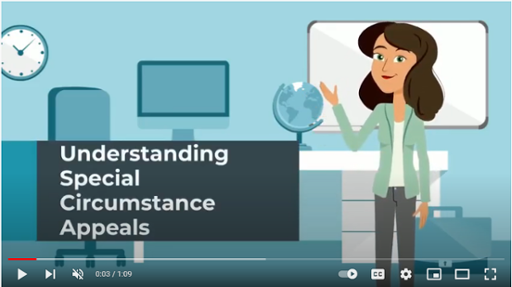Professional Judgments
Cuyahoga Community College (Tri-C®) recognizes that students and families can experience changes in income, finances or other unusual circumstances that are not accurately reflected on their Federal Student Aid (FAFSA). Professional Judgment (PJ) allows the Financial Aid and Scholarships office to review student situations on a case-by-case basis to determine if an adjustment to their record will better reflect their ability to pay for college. Students may request a PJ review directly with Financial Aid.
PJ requests may be made for either a special or unusual circumstance.
- Special Circumstances Appeal: Financial situations (loss of a job, divorce) that justify adjusting data elements on the FAFSA that may result in a lower Student Aid Index (SAI)
- Cost of Attendance Adjustment: A type of special circumstance appeal that allows students to request an increase to their Cost of Attendance (COA) for educational expenses
- Unusual Circumstances Appeal: Conditions that justify adjusting a student's dependency status based on a unique situation, more commonly referred to as a dependency override
All students requesting a PJ review must complete financial aid verification and the PJ appeal form and submit supporting documentation. An approved request does not guarantee additional financial aid eligibility. Tri-C is not required to approve requests for PJ reviews, and Financial Aid's decision cannot be appealed to the U.S. Department of Education.




